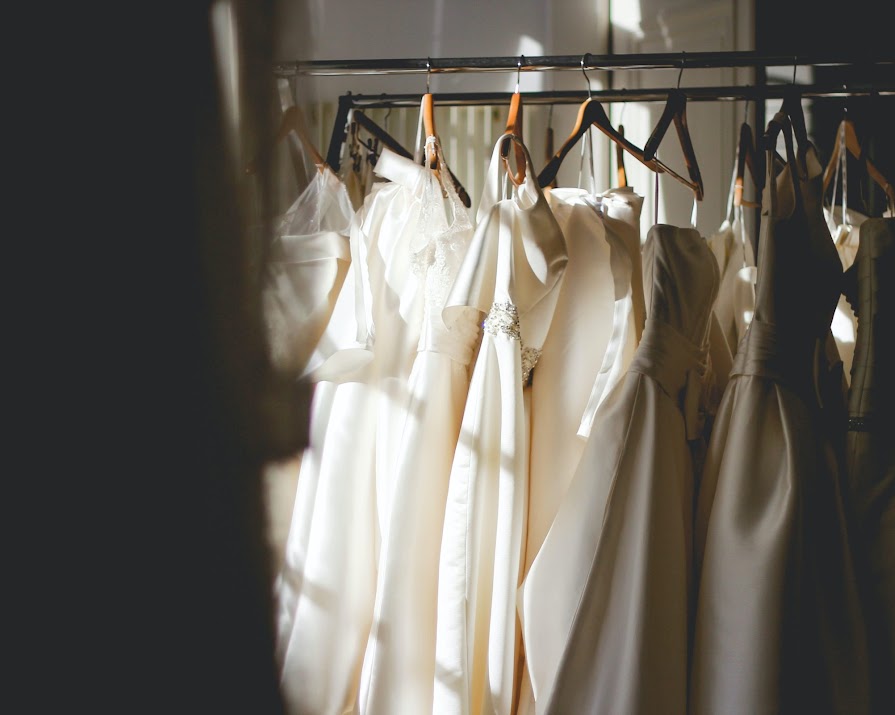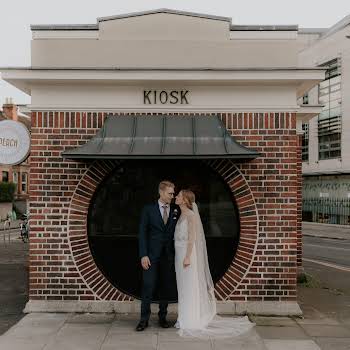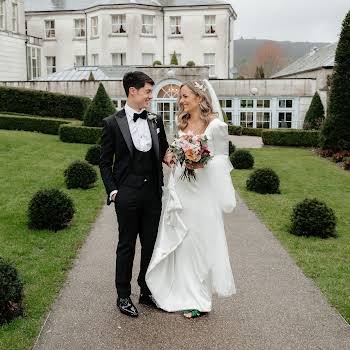
By IMAGE
13th May 2020
13th May 2020
Dr. Caroline West is a Lecturer in Sexuality Studies, Dublin City University who also writes about feminism, sex, and the body, and hosts the Glow West podcast. Obsessed with weddings, she married her husband three times in three months.
Last December, I married my wonderful husband in Vegas- finally, as we had had to postpone our big day by 8 months due to the pressures of finishing college. It was disappointing, but at least it was in our control.
With Covid-19, brides have seen any semblance of control taken out of their hands and replaced with unlimited uncertainty. One could understand a bride being emotionally overwhelmed at the prospect of being forced to postpone a wedding. And one emotion will be consuming for brides having to cancel due to Covid-19 is grief. While feelings of grief are accepted in relation to death, brides are finding mixed responses from family and friends to expressing grief over a cancelled wedding.
Hen parties usually mark an exciting countdown to the wedding, but instead it symbolised the beginning of an emotional rollercoaster for bride-to-be Kelly: “It was my hen weekend in Galway when COVID-19 first hit Ireland so going from such an excited high to uncertainty, fear and disappointment was very hard. We had been planning our wedding and honeymoon for over two years so to have something outside of your control take it all away was extremely upsetting and stressful. In the early stages, when it was unclear if we could have our day or not, we struggled with being realistic and being positive and hopeful- which is hard to balance. The buildup and excitement was ruined and we both felt very emotional through it all. There were plenty of tears.”
Susan reported a “sense of loss of what we’d planned being taken away”, and this lack of control can be frustrating. Similarly, the usual bridal experience has been taken from Karen, who hasn’t been able to go shopping with her bridesmaids for their dresses- usually a fun, bonding activity. Grief seems to be accompanied by guilt for brides. Tracey feels guilty about suppliers who are now out of work, or for guests with cancelled travel plans.
Brides like Susan moved their date from May to August, but may have to postpone again, restarting the relationship building process with suppliers all over again. Weddings are labour intensive for most brides, and this repeated work adds to the never-ending to-do list. As Irish people, we often use humour to cope with many situations, and it’s no surprise to hear that some brides are using humour to keep their spirits up. Kelly has sent Save The Dates with captions such as “same man — new plan”. Karen is trying her best to keep her spirits up: “I think you have to stay positive; we’ll still get married, it may be a little later than expected, but we’ll get there”. One silver lining is that bridesmaids and friends have been stepping up. Both Tracey and Susan report that friends sent over presents in the post and arranged Zoom parties to mark the day.
We live in an age where wedding shaming groups on social media are flourishing, and they are yet another medium to label brides as ‘bridezillas’ for trying to measure up to the immense pressures that most weddings bring. While some weddings have been shamed in these groups for using PPE in photos to announce new dates — regarded as tasteless given the shortages of PPE in hospitals — fun announcements with bottles of Corona have been well received by relatives. Kelly reminds herself that it is ok to grieve the loss of her special day: “it’s hard not to feel selfish for worrying about a wedding when you’re healthy and well. I tackled that by reminding myself that while other people may have their own things to worry about, that didn’t make my feelings or problems any less valid”.
All the brides interviewed felt that not everyone understands the grief and disappointment in postponing, or the risk of financial loss, as Susan faces. Brides often pick dates that have a special meaning, and Tracey was especially disappointed as her date was picked to coincide with her 25th anniversary. Susan says people don’t realise that new dates mean that clothes bought for little kids probably won’t fit anymore.
Brides not only have to manage their disappointment, but that of others too, as Susan explains: “our kids don’t understand, and little people’s emotions are hard to manage”. Perhaps a silver lining is that a refocus on what’s important in a wedding emerges, as Kelly explains: “It was disappointing but when you consider the bigger picture, the day is about my future spouse and I — not the unnecessary party pieces”.
Whether it’s a simplification of the day, or a decision to upgrade to an outrageous extravaganza, it’s your wedding, and you deserve to enjoy it. When you do finally get to have your day, do it your way — guilt-free.
Read more of Caroline’s work at iamcarolinewest.com.
Read more: Covid-19 update: When will weddings be allowed again?
Read more: What it’s like to have your wedding cancelled due to coronavirus






















